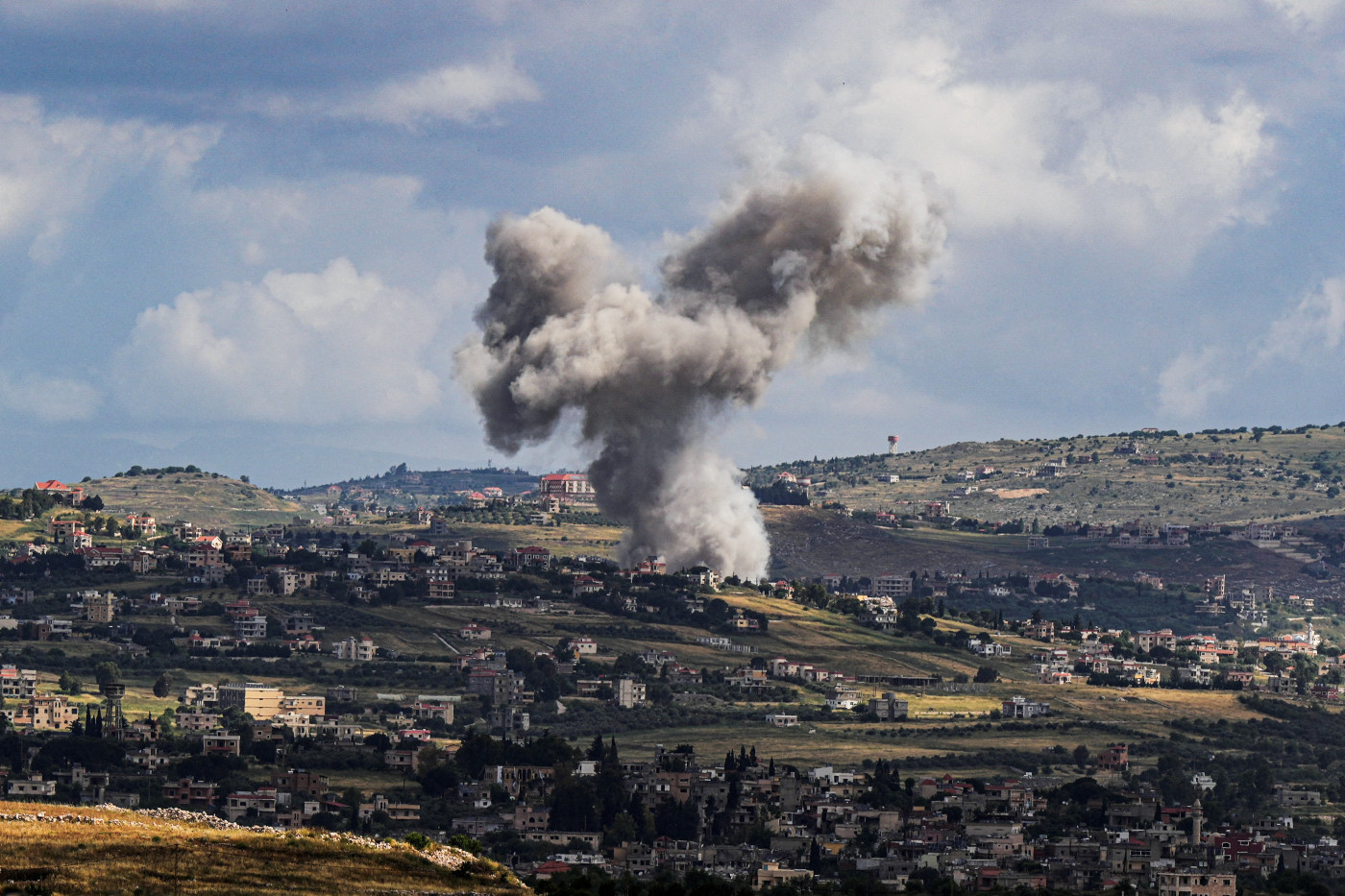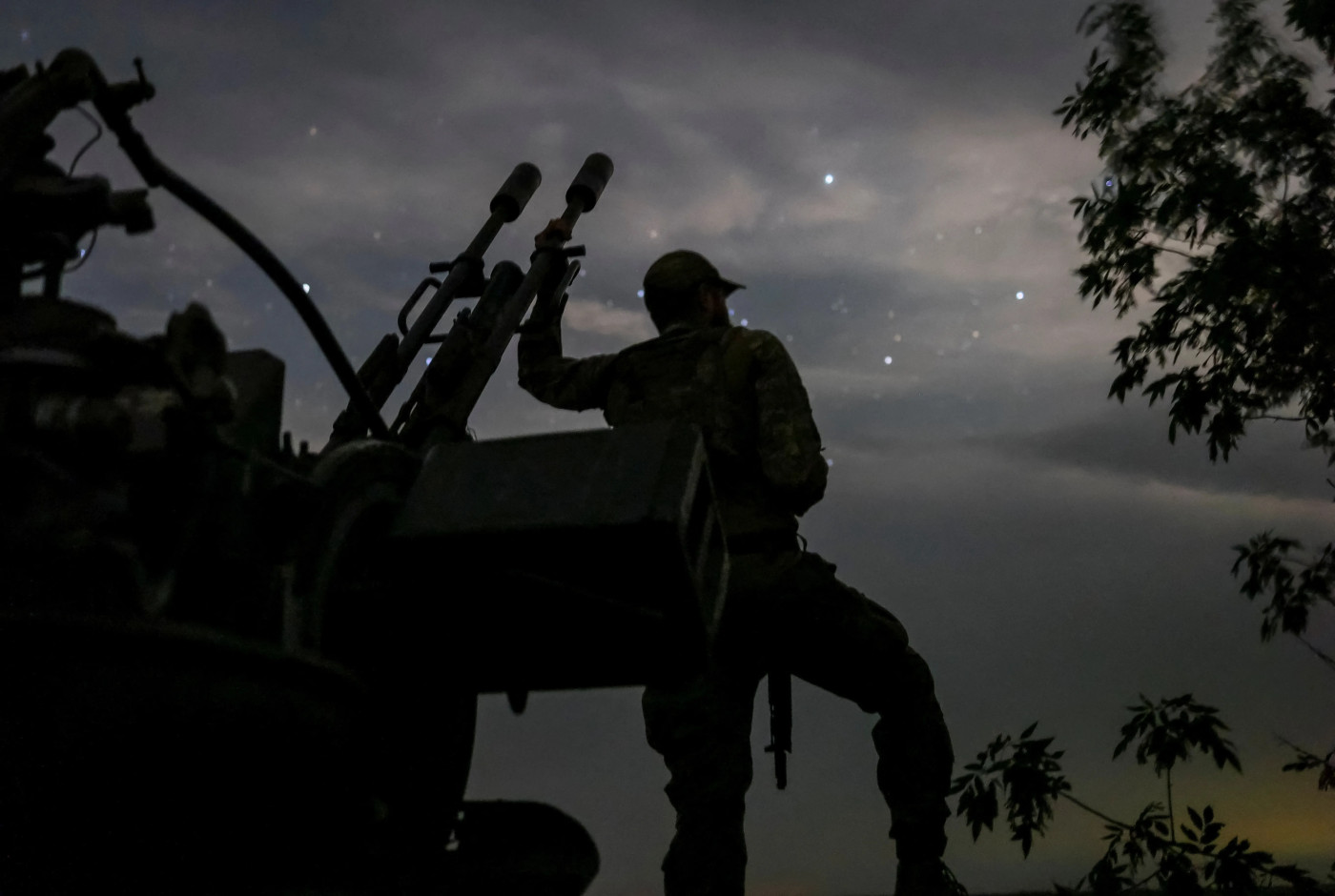US Issues Warning on Israel-Lebanon Border
The United States has again urged de-escalation along Israel's northern border with Lebanon, which is under the control of the Iranian-aligned Hezbollah militia, amid a new spike in cross-frontier fighting.
This week saw Israel assassinate senior Hezbollah commander Taleb Sami Abdullah in an airstrike some six miles north of the shared border. Per an Associated Press report, Abdullah was responsible for one of the hottest portions of the frontier. His area of command included the area facing the Israeli town of Kiryat Shmona, which has repeatedly been targeted by Hezbollah strikes.
The Lebanese militia responded on Wednesday with a barrage of more than 200 missiles, according to the Israel Defense Forces (IDF), some of which were intercepted while others started fires at the point of impact. No casualties were reported. Another 100 missiles were fired into northern Israel early on Thursday.
On Wednesday, Pentagon deputy press secretary Sabrina Singh urged calm, the latest American appeal for both sides to de-escalate and avoid a conflict that may spark a larger regional war.
"We are seeing an increase in activity in the north, and we don't want things to escalate into a broader regional conflict, and that's something that is not new," Singh told journalists at a press briefing.
Defense Secretary Lloyd Austin and his Israeli counterpart, Yoav Gallant—who may end up the subject of an International Criminal Court arrest warrant linked to IDF conduct inside Gaza—discussed the issue in a call this week, Singh said.
Tortuous ceasefire talks have yet to yield a deal, but Singh said she believed that a pause in the fighting in Gaza "would certainly lead to a de-escalation of tensions, but that is something that's still being worked."
Cross-border fire has been near constant since Hamas' October 7 attack on southern Israel, with Hezbollah—a fellow member of the Iranian-led "Axis of Resistance"—launching attacks in support of the Palestinian militant group and demanding a full Israeli withdrawal from the Gaza Strip.
Skirmishes have since increased in scale, while Israel has also conducted multiple assassinations of top Hezbollah and Hamas officials within Lebanon, both in the southern region controlled by the group and in the capital of Beirut.
Israeli Prime Minister Benjamin Netanyahu last week said the IDF is "prepared for an extremely powerful action in the north" into Lebanon while on a visit to the frontier area.
Israeli troops have been training for a possible incursion into southern Lebanon for several months, some being withdrawn from combat in the Gaza Strip to prepare for potential war on the northern front.
Hezbollah has vowed to continue attacks until an Israeli withdrawal from Gaza. Israel is demanding that Hezbollah pull back its forces north of the Litani River, which is around 18 miles north of the Israeli border, per the 2006 United Nations Security Council resolution that sought to end the last major clash between the two sides.
"There will be damage" in the event of a war, Eyal Hulata, who served as the national security adviser to Prime Ministers Naftali Bennett and Yair Lapid, told Newsweek. "Our defenses are good when we're awake. Unfortunately, on October 7, we were not alert. But when we are alert, I think our defenses work very well. This doesn't mean there won't be casualties."
While the U.S. and others are seeking calm, Hulata said he is skeptical of any diplomatic solution. "I think really, it's more a matter of when than a matter of if," he said.
With some 200,000 Israelis evacuated from their homes in the north due to the Hezbollah attacks, Hulata said the domestic political pressure to resolve the situation is intense.
"If Hezbollah is not going to remove their forces from the border—and I don't see any political agreement brokered by the Americans or the French or anyone else that would be robust enough over time to keep Hezbollah away from our borders—unfortunately, I think that it's just a matter of time until we will need to do it ourselves," he said.
"By September, it's going to be almost a full year that they haven't been in their homes; that's inconceivable for our country," Hulata added. "We cannot continue this attrition."
Disclaimer: The copyright of this article belongs to the original author. Reposting this article is solely for the purpose of information dissemination and does not constitute any investment advice. If there is any infringement, please contact us immediately. We will make corrections or deletions as necessary. Thank you.



